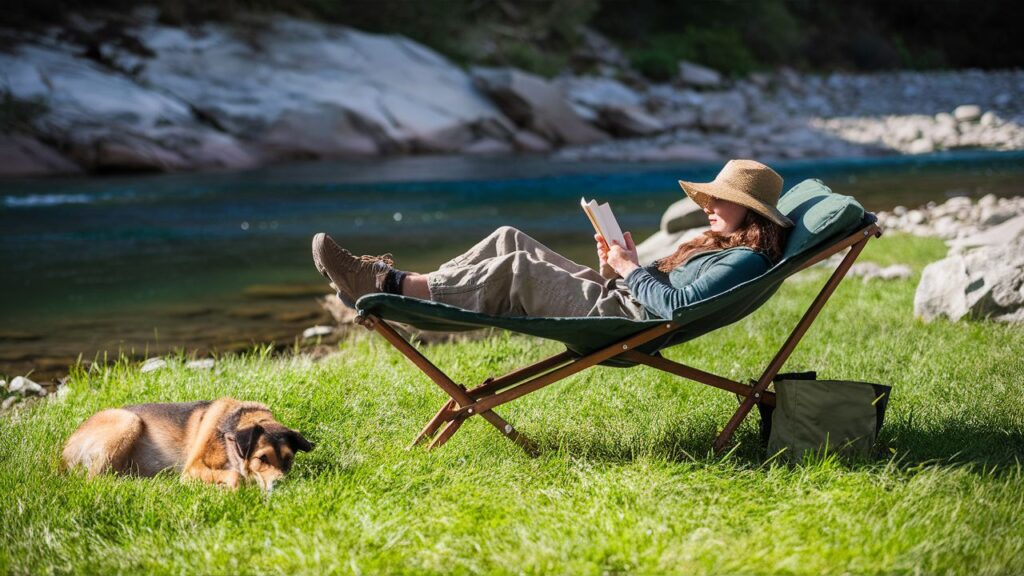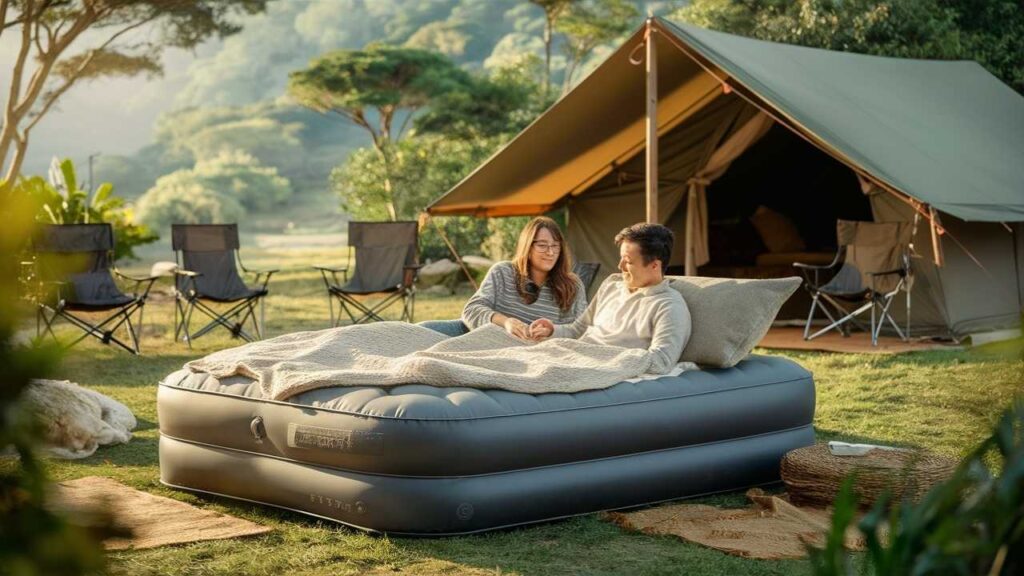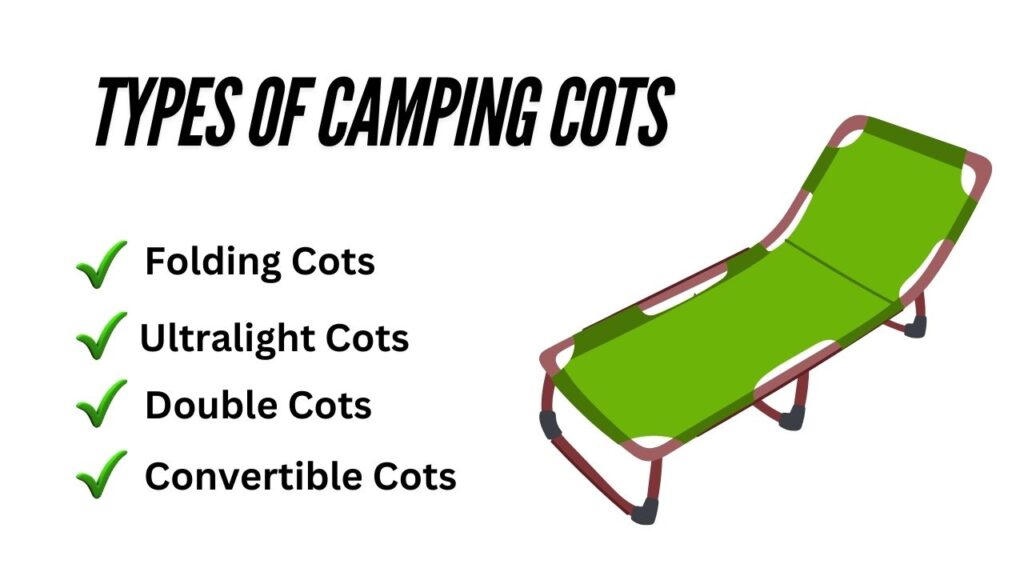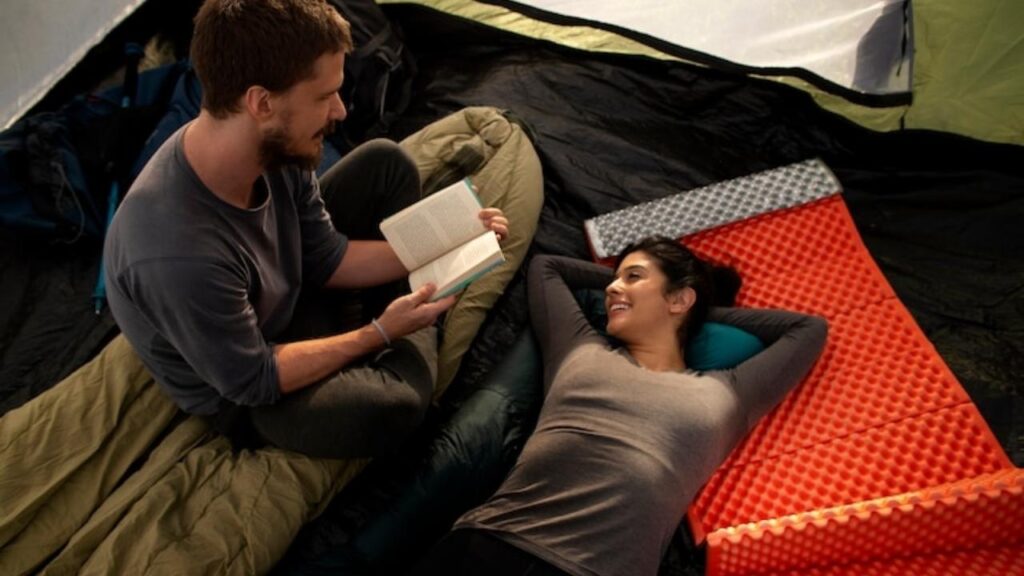Camping is about embracing the outdoors, enjoying the beauty of nature, and creating memories. But one thing can make or break a camping experience—your sleep. A camping cot can make all the difference by providing a supportive, comfortable bed that raises you off the ground, helping you wake up refreshed and ready for adventure. This guide will walk you through everything you need to know about camping cots, so you can find one that’s perfect for your needs.

Before each trip, inspect your cot for any signs of wear, especially around the frame and joints.
Why Choose a Camping Cot?
Sleeping outdoors is exhilarating, but dealing with rocky terrain, uneven ground, and cold surfaces can lead to a restless night. Here’s where a camping cot shines. It offers several advantages that can turn your camping trip into a more enjoyable experience.
• Off-the-Ground Comfort
Camping cots lift you off the ground, helping you avoid rocks, sticks, and the cold ground. This elevation also makes it harder for bugs or water to disturb your sleep.
• Improved Sleep Quality
Cots provide a firm, flat surface that supports your body more evenly than sleeping bags on the ground. This can reduce back pain, making you feel more energized the next day.
• Space Efficiency
Since camping cots are elevated, they allow for extra storage space underneath. This feature is especially useful in smaller tents where floor space is limited.
Tips for Selecting the Perfect Camping Cot
Not all camping cots are created equal. Here’s what to keep in mind:
• Weight and Portability
If you’re hiking or backpacking to your campsite, go for a lightweight, compact cot that’s easy to carry. If weight isn’t an issue, you can choose a larger, more luxurious cot.
• Size and Height
Camping cots come in various sizes and heights. Taller cots are easier to get on and off, but they may be bulkier. Also, consider the cot’s length—some are designed for taller individuals, while others are better for kids or shorter adults.

• Material and Durability
Most camping cots are made from aluminum or steel frames and durable fabrics like polyester or nylon. If you’re camping in rough environments, go for a cot made with thicker, tear-resistant fabric.
• Weight Capacity
Be sure to check the weight limit of your cot. Many cots can support up to 300 pounds, but heavy-duty options are available if needed.
• Assembly Time
Some cots require assembly, while others fold out instantly. If you want convenience, look for a cot with easy setup.
Types of Camping Cots
There are various types of camping cots, each offering something different:
• Folding Cots
These are the most common type, easy to set up and take down. They typically come with a sturdy metal frame and thick fabric.
• Ultralight Cots
Ideal for backpackers, these cots are lightweight and easy to carry but may have limited cushioning and height.
• Double Cots
For those camping with a partner, double cots provide enough space for two people, similar to a small bed.
• Convertible Cots
Some cots can transform into a lounge chair, adding versatility to your camping gear.

Top Benefits of Using a Camping Cot
• Comfortable Sleep Surface
No more waking up with a stiff back; a camping cot provides a stable, even surface for better sleep.
• Better Insulation
Being off the ground means less exposure to the cold. A camping cot paired with a sleeping bag can be incredibly cozy.
• Ease of Entry and Exit
Elevated sleeping surfaces are easier to get on and off, especially for older campers or those with joint pain.
• Extra Storage Space
Since the cot is elevated, you can stash bags, clothes, or other gear underneath, helping keep your tent organized.
Camping Cot Care Tips
To ensure your camping cot lasts, follow these simple care tips
• Keep It Clean
Wipe down your cot after each use to remove dirt and moisture that could damage the material.
• Proper Storage
When you’re not using your cot, keep it in a cool, dry spot to extend its life. Avoid prolonged exposure to direct sunlight, as UV rays can break down the fabric over time.
• Check for Damage
Before each trip, inspect your cot for any signs of wear, especially around the frame and joints.

FAQs
Ultralight camping cots are ideal for backpacking as they’re designed to be lightweight and compact. Brands like Helinox and Therm-a-Rest offer excellent options that prioritize portability.
Yes, but check the dimensions of your cot and tent before packing. Low-profile cots are often better for smaller tents, as they take up less vertical space.
Absolutely. A camping cot can help keep you warmer by lifting you off the cold ground. For extra insulation, add a sleeping pad or blanket on top.
Most camping cots can hold between 250-300 pounds. Heavy-duty models can support more weight, so check the manufacturer’s specifications for your specific cot.
Camping cots and sleeping pads each have their benefits. Cots offer elevation, better insulation, and storage options, while sleeping pads are lighter and easier to pack. Your choice depends on personal comfort and camping style.
Conclusion
A camping cot can be a game-changer, transforming the way you experience sleeping outdoors. From off-the-ground comfort to added storage, the benefits are significant. Remember to consider factors like weight, size, material, and setup when choosing your cot. With the right camping cot, you’ll be well-rested and ready to take on any outdoor adventure.
Whether you’re an avid camper or a weekend warrior, a quality camping cot can make your outdoor adventures much more enjoyable. So, gear up, get out there, and sleep under the stars in comfort!
